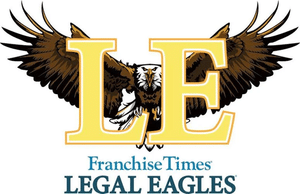How Should Franchisors Prepare for Private Investment in the Health & Fitness Industry?

With health and wellness franchises becoming increasingly attractive to private equity firms, there are a few key points franchisors should consider to best position themselves as a compelling option for a private equity exit.
Establish and Protect Your Brand
Creating and licensing a brand is the essence of franchising, and what positions successful franchises for private investment. Strong branding is what has helped HVLP fitness brands grow and thrive, with many seeing record membership growth since 2020 post-pandemic. Consumers want consistency, and investors do not want variance across locations or outlets. This is a large reason why Planet Fitness has been able to scale as rapidly as they have, and why they have become so attractive to investors. This includes registering trademarks and any other intellectual property with the U.S. Patent and Trademark Office, which helps distinguish a brand from competitors.
Additionally, developing an intricate Operations Manual to set the standards by which franchisees must operate will create the teachable, repeatable system that investors look for.
This manual should include systemized supply chains for equipment and potential food options or supplements sold by the franchise, management training, and clearly outline the centralized technology and software needed to promote systemwide uniformity and efficiency.
Quality over Quantity with Initial Franchisees, Selectively Aggressive Multi-Unit Development with Those Franchisees
As exciting as expanding a franchise can be, franchisees constantly defaulting will put a dent in the likelihood of private investment before it starts. So, franchisors need to resist the temptation to oversell too many units too early and selectively find dependable, organized, and committed individuals to run franchised locations.
Finding quality franchisees is particularly important in the early stages of building systems out. Once a few bedrock franchisees are in place and have their locations running well, that is the time to promote multi-unit agreements with those franchisees. Those early franchisees will ideally set the standard and become the reference points for eventual discussions with investors.
This will show investors that the franchisees (i) are competent enough to run their first system well enough to where the franchisor was willing to trust them with an additional location, and (ii) the franchisee is (in all likelihood) happy enough with their first location that they were interested in purchasing another. This will help show the stability investors look for in investments of this nature.
There is a line to walk with unit development, though. Setting a system up to be attractive to investors typically requires some sort of perceivable upside. In other words, your system will probably be more attractive if it seems like there is still room for it to grow and additional territory to offer future franchisees.
Purposeful, Detailed Bookkeeping in Anticipation of Due Diligence

Since the fitness and wellness sector is very membership-revenue dependent, this means closely monitoring and documenting membership history and trends in addition to typical financials.
Additionally, franchise regulation varies from state to state. Keeping abreast of changes and regulatory trends in your industry goes a long way towards ensuring compliance – a non-starter for franchisors positioning themselves for private investment.
Update your Franchise Disclosure Document After Sale
There will still be items to address after the investment, as well. A franchisor must update their FDD when a material change occurs. A significant investment or acquisition is certainly material. So, after being acquired or receiving an investment, the franchisor must update their FDD to reflect new ownership and financials. Franchisors cannot offer or sell new franchises without providing these updates.
Similarly, any litigation, regulatory, and/or bankruptcy history must be disclosed. Disputes of this nature may be a sensitive topic, but nonetheless must be disclosed and added to Items 3 and 4 of the FDD before a franchisor can resume sales.
Do You Have the Right Franchise Team?
In sum, fitness franchises do not find themselves in a position to attract private investment by accident. It requires a specific vision and consistent, purposeful steps to reach that position.
Engaging outside experts—experienced franchise counsel (like the attorneys at Spadea Lignana), accountants, and consultants—to align legal obligations with operational realities and to help design practical processes for recruitment, territory management, and ongoing compliance to put your franchise in that position. These steps lower risk, protect your brand, and make growth more predictable and sustainable, laying a strong foundation for potential private equity investment down the line.
Still not sure if franchising is right for you? Read our blog for “Should I Franchise My Business?” and get a better sense of a franchise timeline.
If you have any additional questions or are considering launching a franchise, contact us online or give us a call at (215) 525-1165.








